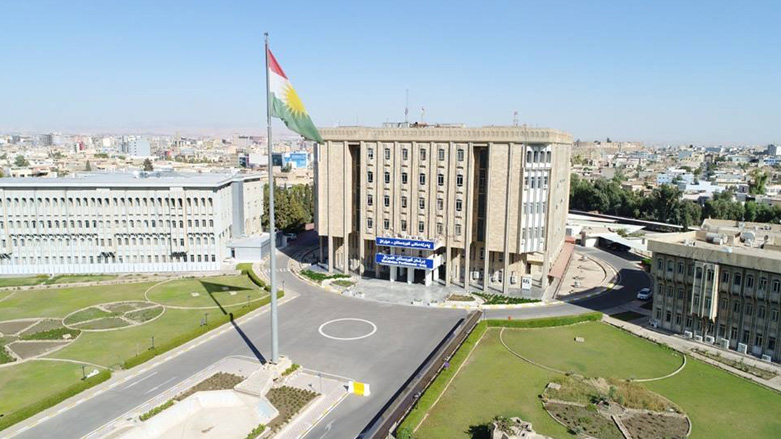Kurdistan Parliament presidency meets to reactivate parliament after 75-day standstill
Following the meeting, Qahwachi told a press conference that the Kurdistan Parliament presidency would hold another meeting next Tuesday with the heads of the political blocs in the parliament for further discussions on resuming parliamentary sessions.

ERBIL (Kurdistan 24) – The presidency of the Kurdistan Parliament met on Tuesday to discuss ending the 75 days of inactivity caused by political disagreements among Kurdish parties.
The parliament’s presidency, consisting of the speaker of parliament Rewaz Fayiq of the Patriotic Union of Kurdistan (PUK), deputy speaker of parliament Hemin Hawrami of the Kurdistan Democratic Party (KDP), and parliament secretary Muna Qahwachi of the Turkmen Reform Party, all met to discuss ending the deadlock.
Fundamental disagreements among the political parties over amending the elections law and the form of the Kurdistan Region’s Independent High Elections and Referendum Commission (IHERC) caused the 75 days of inactivity.
Following the meeting, Qahwachi told a press conference that the Kurdistan Parliament presidency would hold another meeting next Tuesday with the heads of the political blocs in the parliament for further discussions on resuming parliamentary sessions.
The Kurdistan Region elections are scheduled for Oct. 1. The KDP and political parties representing minorities in the region support holding the elections on time. However, the PUK and several smaller parties want to delay them.
Read More: Deputy Speaker Hawrami underlines importance of holding Kurdistan Parliament elections on time
The PUK and those other smaller Kurdish political parties, including the Islamic parties, call for amending the elections law, including reducing the number of quota seats allocated for minority groups.
The KDP and the representatives of the minorities in the parliament strongly reject reducing the number of quota seats. They also disagree with amending the elections law because they believe it will delay the elections.
They argue that bringing the elections law back to the parliament for amendment will take far too long since it will require lengthy discussions and several sessions. Therefore, they suggest reactivating the elections law in its current form to hold the elections on time and postpone its amendment until the elections are over.